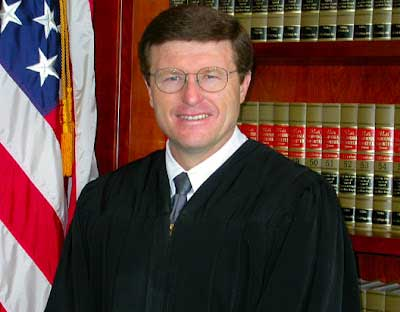
By Tim Redmond
JULY 17, 2014 – A conservative federal judge from Southern California may have done what progressives have been trying to do for years: end the death penalty in California.
The July 16th order by Judge Cormac J. Carney, in the case of Jones v. Chappell, is an astonishing document. It takes no position on the morality of the death penalty, or whether it’s inherently cruel for the state to take a life. But it repeatedly spanks the State of California for turning the process of executions into such an unpredictable fiasco that inmates – and the families of victims – have no idea whether, or when, a condemned man will die.
“Arbitrary factors, instead of legitimate ones … determine whether an individual will actually be executed,” the judge wrote. And that has resulted in a system that serves no penological purpose.”
And while supporters of the death penalty say (as Kent Scheidegger, legal director of the Criminal Justice Legal Foundation, did on Forum this morning) that the problems Carney identified can be fixed with state Legislation (if only the damn liberals would allow it), he’s wrong.
The fundamental problem that the judge found with the way the death penalty is administered in California is that prisoners facing the ultimate sentence don’t have adequate legal representation.
That’s not about state laws limiting appeals. The California Supreme Court has to hear all appeals anyway, and that takes time. It also takes skilled counsel. Then there are the federal appeals, which also are mandated by the US Constitition, which also take time and skilled counsel.
It takes years and years for an inmate even to get a lawyer for the first round of appeals. And more and more years to get a lawyer for the federal cases. There just aren’t enough publicly funded attorneys to do the job in a timely fashion, and the state doesn’t pay enough for private counsel to take on these immensely complicated appeals.
It can take from three to five years for a Death Row inmate just to get a lawyer appointed; then it’s another five years or more to get the case prepared and heard. Why? According to the judge, “the State’s underfunding of the death penalty system [is] a key source of the problem.”
In other words: Lawmakers who talk about the incessant delays are unwilling to spend the money – we’re talking hundreds of millions of dollars – to fund the legally adequate appeals that the nearly 900 people who have been sentenced to death are guaranteed. Not, again, by some liberal state laws; these are basic Constitutional rights.
Meanwhile, the state Supreme Court can only handle maybe 20 or 25 death penalty cases a year – which means there’s a 35-year backlog right there.
Too many people are sentenced to death, and the systems in place can’t handle them.
There’s no easy solution. You can’t just get rid of the appeals – particularly since, according to the judge, 60 percent of the people who have made it all the way through that process have had their death sentences vacated. Yes: The courts have found that more than half of the death sentences handed down since 1978 were invalid for one reason or another. Without full appeals, the state would be killing a lot of people on the basis of faulty trials, incompetent counsel, inaccurate facts, undiagnosed mental illness or a variety of other factors.
“Judge Carney made it very clear that the reason the system has gotten to this place is that the State of California hasn’t done its job,” Ana Zamora, director of the Death Penalty Project at the Northern California ACLU, told me.
And there’s only one way the state can “fix” this, which is to pour a whole lot of the taxpayers’ money – a lot, lot, lot of the taxpayers’ money — into providing legal counsel for Death Row inmates. You seriously think that’s going to happen?
Gov. Jerry Brown is overwhelmed with his existing prison-budget problems. We’re spending billions to meet court-mandated provisions just for inmate health care, and the tight-wad guv isn’t a bit happy about it.
Who in the Legislature is going to propose a massive new increase in funding for death-penalty lawyers? The liberal Democrats who control those key committees don’t like the death penalty; the conservative Democrats and Republicans think defense lawyers are part of the problem, and that giving them more money just funds more delays. The governor (who doesn’t support the death penalty and would be happy as can be if the courts – not him – made it go away) is not about to sign off on that kind of spending.
So the “fix” is never going to happen.
Now: The Ninth Circuit Court of Appeals could overturn this ruling, as could the US Supreme Court. But after all these years of hard-fought political organizing, at a time when nearly half the state’s voters were ready to scrap the death penalty, this legal decision is not about the merits of executions.
“We’ve made all this amazing progress in getting to the point where we can talk about this beyond the emotional issues,” Zamora said. “We can look at the facts, and the facts say it’s unconstitutional and unfair.”
The federal courts have not been kind to California’s criminal justice system. It would be entirely consistent for them to say: The state messed up its prisons, and it’s messed up its death-penalty process. Even the conservatives on the US Supreme Court might go along with that argument.
In which case, the death penalty is gone for good in California.
Full disclosure: My domestic partner works for the HCRC. She never talks to me about the cases the agency is handling. We just talk about what to give the kids for dinner and who’s walking the dog.





